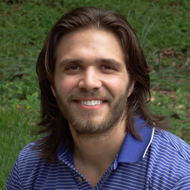The Powerlifter
Obesity, poor diet, lack of cardiovascular exercise, high blood pressure. Billy had all of them. He dreamed of breaking powerlifting records, not longevity. On his first day at the office, he carried, in one trip, his entire collection of engineering books, reference materials, and personal items—four moving boxes stacked taller than his head. His face burned red from the strain. He held his breath between steps. He grunted. But when I offered to help, he laughed. “Leave it to the experts,” he said. He was three hundred pounds, equal parts fat and muscle, and he’d accepted an engineering job at our office after demanding our boss’s guarantee that he could leave by five each day to train for his powerlifting competitions.
He dropped the four boxes on his desk with a final grunt. He unpacked his personal belongings first, hanging medals on his cubicle walls. Third place medals. Second place. Never a first. I touched the laminated nametag outside his cubicle. Billy Murphy. I noticed a framed picture of his wife and daughter among a box of engineering reference materials, where it would stay for a week until he got around to unpacking his work-related stuff, as if the picture meant nothing to him compared to those bronze medals.
During his second week in the office, he broke a chair. The rumble shook our floor like a mine blast, and a few of us gathered at his cubicle, though by now we knew better than to offer to help. We could see it in his eyes—not the embarrassment but the anger directed at us for not leaving him alone. We watched as he grunted and struggled to stand amid the pile of broken plastic, like a beached whale fighting to regain control of its body.
We whispered in the break room about his unhealthy choices, how he dipped tobacco at his cubicle and drank coffee all day, at least six cups. Occasionally he smoked. All that, coupled with his size and lack of proper cardiovascular exercise. We didn’t want to speculate about his blood pressure, knowing if we assigned him a number, if we quantified his unhealthiness, we’d feel obligated to say something.
Still, our silence was a burden.
Each day at noon we watched as he unpacked a stack of Tupperware containers from a lunchbox the size of a grocery basket. Protein-heavy feasts of hormone-fed chicken and buttery rice, calories desired in quantity, not quality. His mid-morning and mid-afternoon snacks each equated to more food than my dinner. He ate at his desk in silence, a brooding man, except on Tuesdays, when he met his wife, a woman he complained about more than complimented. We imagined him eating in silence there, too.
He tolerated his family and tolerated his job, but he didn’t hide his suffering. We speculated why he hated his life so much. Maybe he’d impregnated his wife during college, married from necessity, and studied engineering to support them. Only the few hours of refuge each evening at the gym kept him sane, after guzzling a pre-workout drink that flushed his face as red as his gym bag. We imagined him at the gym with five hundred pounds on his back, one deep breath in his lungs, veins flooding his forehead, the sound of his grunts bouncing between hollow walls, his disappointment and success—that fine line between—riding on the completion of a single repetition.
Though he didn’t want us bothering him at his cubicle, occasionally he showed us videos in the morning of his lifts the previous evening, personal records on his back squat and bench press and deadlift. We didn’t know if clinging to a dream like that was pathetic or admirable—a dream he’d created despite the cost to his wife and the overall chance of still being alive when the time came for his daughter to marry. It’s true, we all need a passion; it’s written somewhere within the mysterious fibers of our souls. But is it pathetic or admirable? I don’t know. Maybe both.
For three years we watched him suffer in his cubicle with his depression and salt-smothered calories and nicotine and caffeine and pre-workout shakes, held together by a few hours each evening during which he strained his body to failure without any cardiovascular exercise. So nobody was surprised by his heart attack at thirty-six, except for maybe his wife, who prepared his Tupperware meals each night while he labored at the gym. Maybe she was the only one so blinded by a need to support Billy’s dream that she hadn’t realized the years of his slow suicide.
Our boss didn’t tell us details, only that he died before paramedics arrived, so I imagined what happened: Billy collapsed to the floor after a squat, the pain spreading to his neck and jaw and shoulders, the world closing in around him, and still he refused help, even as his fellow powerlifters approached him, concerned. “I’m fine, I’m fine,” he said, even though by now he must’ve known he wasn’t. And though he wanted his final thoughts to be about his family—though he tried to focus on his wife’s touch and his daughter’s voice—his mind lingered on the records he’d never break, the invisible platform upon which he’d never stand. Same as always.
 Nicholas A. White lives in Charlotte, North Carolina. His stories appear in Permafrost Magazine, Night Train, Pithead Chapel, Thrice Fiction, and elsewhere. For more information, visit www.nicholasawhite.com.
Nicholas A. White lives in Charlotte, North Carolina. His stories appear in Permafrost Magazine, Night Train, Pithead Chapel, Thrice Fiction, and elsewhere. For more information, visit www.nicholasawhite.com.

